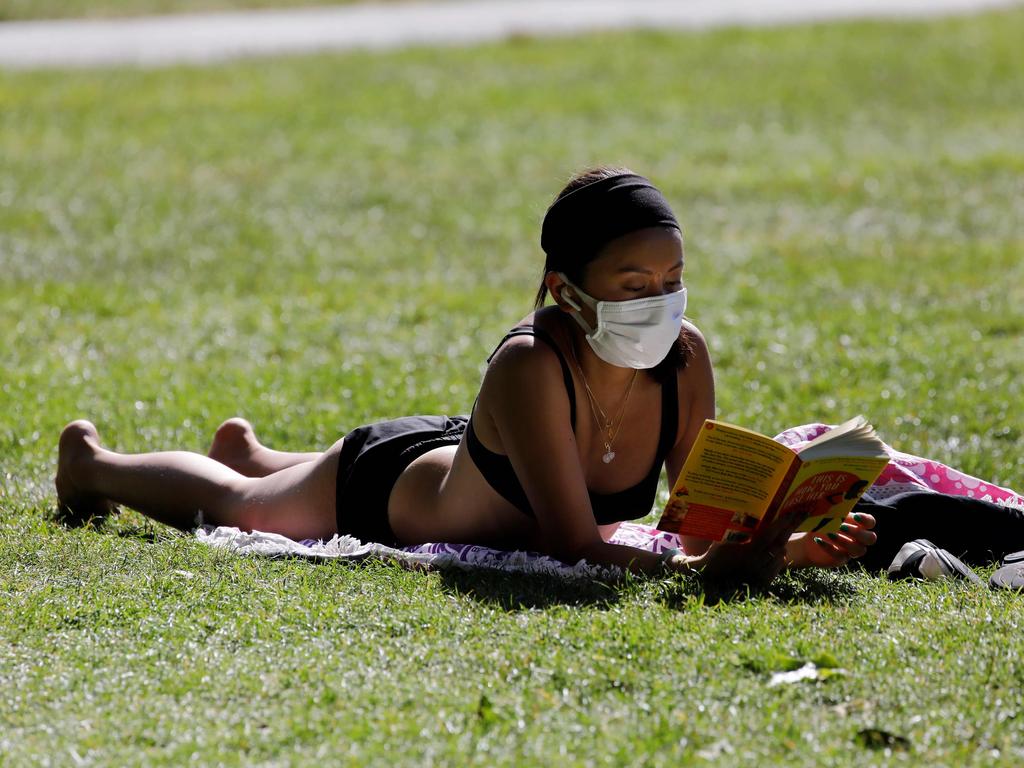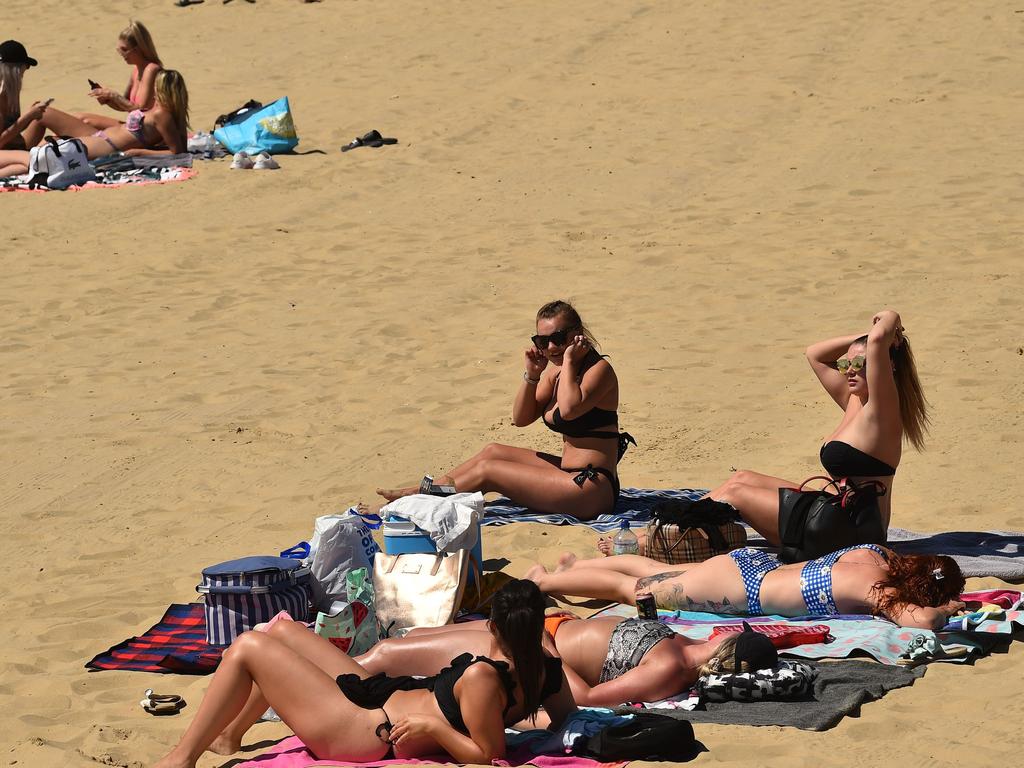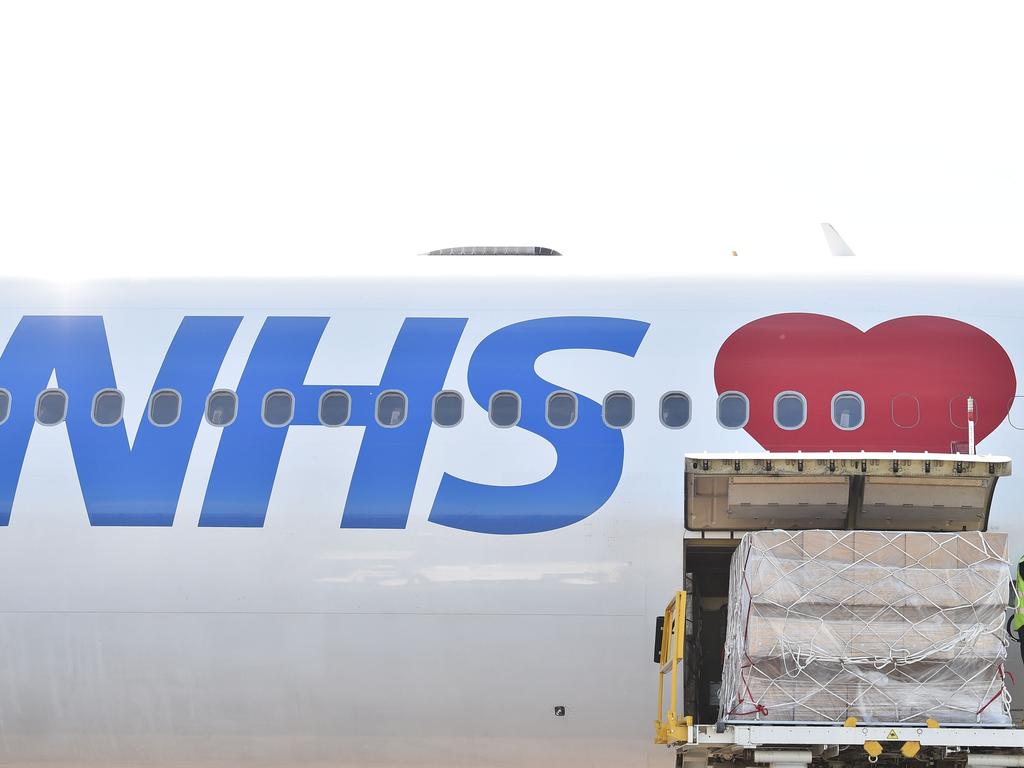Coronavirus UK: One in six Londoners have had COVID-19
A stagging number of Londoners have tested positive for antibodies to COVID-19, suggesting around one in six have already contracted the virus.
A recent study has revealed around one in six people in London and one in 20 elsewhere in England may have already contracted COVID-19.
Data gathered from an antibody surveillance study led by the Office for National Statistics (ONS) suggests 17 per cent of people in London and about 5.0 per cent in England have tested positive for antibodies to the coronavirus, British Health Secretary Matt Hancock said.
Hancock made the announcement as the government worked out a deal with pharmaceutical firms for delivery of 10 million antibody tests.
There was no evidence of increased infection from the coronavirus among front-line National Health Service and care staff, according to the ONS.
Hancock said certificates are being considered for people who test positive for coronavirus antibodies.
MORE: Follow the latest virus news
MORE: China backs down over virus probe
“It’s not just about the clinical advances that these tests can bring. It’s that knowing that you have these antibodies will help us to understand more in the future if you are at lower risk of catching coronavirus, of dying from coronavirus and of transmitting coronavirus.”
He also announced a trial of a rapid 20-minute test to tell people if they currently have COVID-19. There has been criticism that people have been waiting days or weeks for test results.
Health chiefs and ministers have sounded the alarm over the UK government’s failure to test and track cases effectively during the virus pandemic, warning the failure to implement a plan risks sparking a deadly second wave.


On Thursday the chief executive of the National Health Service (NHS) Confederation wrote to Hancock warning that failure to develop a “test track and trace strategy” risked creating a second peak of the virus.
“We are aware there is a lot of work being done around testing and tracing, but we are concerned that time is running out to finalise a test, track, and trace strategy to avoid a potential second surge,” Niall Dickson wrote.
“We are 10 weeks into the pandemic and developing a strategy with a well worked through local base should have been in place much sooner.”
“Our members are concerned that unless there is a clear strategy, then there must be a greater risk of a second wave of infections and serious health consequences.”
The UK government has been under fire for its handling of the pandemic that has seen it become the hardest hit nation in Europe with more than 41,000 killed by the virus.
The government has been criticised for adopting a lockdown too late, with limited early testing capacity meaning health bosses were unaware there was widespread community transmission of the virus happening in early March.
The decision to abandon widespread testing and contact tracing early on, as opposed to the likes of Germany, South Korea and Hong Kong has also been highlighted as a failure. Meanwhile moves to discharge patients from hospital into care homes without testing in fear that NHS capacity could become overwhelmed has been blamed for fuelling a hidden epidemic in aged care facilities – something PM Boris Johnson has admitted “bitterly regrets”.
While some lockdown measures have already been relaxed in England, from June 1 schools and childcare centres are due to return and a contact tracing app being trialled on the Isle of Wight has not yet been rolled out nationally.
The government has pledged to employ an army of 25,000 contact tracers, however it has also struggled to meet self-imposed testing targets of 100,000 people a day and is yet to implement a promised 14 day quarantine for anyone returning home from abroad.
MORE: Who will get COVID-19 vaccine first?

‘ONE OF THE MOST CONSEQUENTIAL DECISIONS’
Some of the major government failings were detailed in a forensic letter from the House of Commons science and Technology Committee, a group of cross party MPs, to leaders this week.
MP Greg Clark said the six sessions the group has held so far found limited testing capacity was one of the most “consequential decisions” of the crisis that meant it has been hard to build up a clear picture of who has the virus and where.
“Capacity was not increased early enough or boldly enough. Capacity drove strategy, rather than strategy driving capacity,” Mr Clarke wrote.
He said “very low numbers of people were being tested well into March, with the number of tests actually falling at a critical time to 1,215 on 10 March.”
“The decision to pursue an approach of initially concentrating testing in a limited number of laboratories and to expand them gradually, rather than an approach of surging capacity through a large number of available public sector, research institute, university and private sector labs is one of the most consequential made during this crisis,” the letter said.
“From it followed the decision on 12 March to cease testing in the community and retreat to testing principally within hospitals. Among other consequences, it meant that residents in care homes — even those displaying COVID-19 symptoms — and care home workers could not be tested at a time when the spread of the virus was at its most rampant.”

Mr Clark’s group was also critical of the decision to keep the government’s SAGE group of scientific advisers and the reports they were relying on operating in the shadows, meaning public scrutiny of the scientific advice was impossible.
A plan for handling asymptomatic carriers of the virus – who show no symptoms but can transmit the disease – has also been unclear.
“This is a particular concern for NHS workers and care workers who may be asymptomatically infected and transmitting the disease to vulnerable people with whom they are in close contact,” he said.
The letter recognised the government was working in unprecedented circumstances but said early failures must be corrected before it’s too late.
“The government must urgently build up contact tracing capacity in order to facilitate further easing of social distancing measures as soon as possible, while minimising the risk of a second peak in infections,” he wrote.
With AAP




